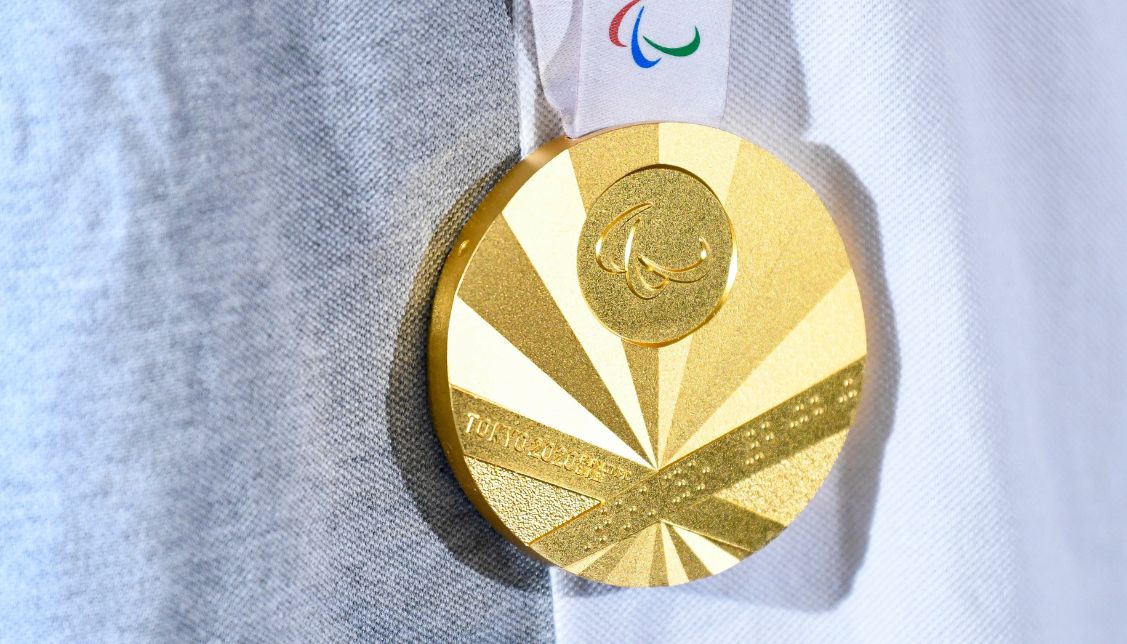 Add My Company
Add My Company
Jessica-Jane Applegate: Paralympic Icon

Paralympic athlete Jessica-Jane Applegate began swimming as a child. She has never let her autism spectrum disorder diagnosis impact her sporting career goals as an adult.
Now aged 28, she has become one of swimming’s greatest Paralympics icons, winning her first gold medal in the S14 200-metre freestyle at the Summer Paralympics 2012.
Aged only 16, she set a new Paralympic record in the S14 category, which is for athletes with an intellectual impairment. The teenager also won three medals for Great Britain in the 2013 IPC World Championships in Montreal, including gold in the 200-metre freestyle. The same year, she was awarded an MBE in the Queen’s New Year Honours for services to swimming.
At the Rio 2016 Paralympics, she won two silver medals and a bronze, followed by a gold and two bronze medals at the Tokyo Paralympics in July 2021. She also added a Commonwealth silver medal to her tally at the 2022 Games in Birmingham.
While Applegate isn’t competing with the 2024 Paralympics’ GB Team in Paris, she has taken on a new role as part of the media team for Virtus Sport, for whom she is an ambassador.
To inspire other athletes with a disability to never give up; the iconic swimmer has frequently spoken of the challenges of ASD in both day-to-day life and her career.
Early life
Born in Great Yarmouth in August 1996, she learned to swim as a child at Lowestoft and Oulton Broad Swimming Club in Waveney. Her mother, Dawn, began taking her to swimming lessons after she was diagnosed with a learning difficulty at nursery school. Interacting with other people was always a challenge and the water was a place of calm.
After her medical diagnosis, Applegate received extra support for the remainder of her schooldays, saying this made it easier than for other kids who went undiagnosed.
At secondary school, she was then diagnosed with Asperger’s Syndrome, a type of autism spectrum disorder. Often referred to as a hidden disability, it is a neurological and developmental disorder. Describing it as “one of those things”, she added that “probably every person with a disability will sometimes try to hide it”. This was how Applegate coped after being bullied at school, trying to “blend into the crowd”.
Swimming played a significant role, helping her survive the challenges of her schooldays. She has described the swimming pool as somewhere she “fits in” and “feels safe away from the rest of the world”.
Symptoms of Autism Spectrum Disorder
The term “Asperger’s” is no longer widely used, and people diagnosed as with the condition in the past are now treated for ASD. Autism is diagnosed under three classifications: Level One (mild); Level Two (moderate) and Level Three (severe).
Children on the ASD spectrum often find it hard to make eye contact or use body language, facial expressions and hand gestures to communicate with their peers during play time or conversations. They may be unable to develop relationships with children of their own age and aren’t spontaneous in sharing achievements or interests with other people.
When it comes to family relationships, a child with ASD might not share happiness and joy with their parents.
Overcoming autism challenges
Applegate has given many interviews on television and to newspapers to explain the daily challenges she still faces. Her condition means she sometimes can’t understand day-to-day activities such as training routines, reading, remembering her swimming technique and reading the pace clock. This has been a constant source of frustration while growing up and forging a swimming career. “I’d forget what I’d learned to do the day before,” she explained. “I have poor concentration.”
Other challenges have been continually misplacing equipment and being unable to communicate well. “This affects me on a daily basis,” she adds. Praising the “supportive team” around her, Applegate says swimming has always made her feel like “part of the group” and somewhere she could be herself and not worry.
Constant change is another element of autism that can cause anxiety, so travelling between her home and competitions with the team has sparked a little discomfort, but she has managed to overcome these feelings.
Working with different staff as part of the Paralympic swimming team also caused stress that was hard to deal with, but again, she overcame this potential obstacle.
As a youngster, Applegate’s symptoms included having bags of energy, which left her unable to sleep. It also caused behavioural issues.
Difficulty in sleeping is common for people on the autism spectrum. The reasons can include problems winding down and relaxing, so special beds for autism have been designed to help alleviate the hyperactivity and inattentiveness that sleep issues can bring.
An autism bed is part of a range of treatments that health professionals can suggest. “I wasn’t sleeping, I just had so much energy,” Applegate recalled.
Doctors suggested she could take medication for ADHD, but her mother didn’t like the idea. Instead, Dawn decided to enrol her daughter in various activities, such as dancing and judo, to help burn off the excess energy. While some of the hobbies didn’t work out, swimming was the one constant that helped her to relax. “I felt free in the water,” she said. “I didn’t have to speak to other children.”
Today, cold water therapy is a recognised treatment for highly sensitive people, such as those with autism.
Watching American swimmer Michael Phelps winning at the Beijing Olympics in 2008 inspired the then 12-year-old Applegate to become a swimmer at the highest level – something she achieved in just four years. As a result, she serves as an inspiration for individuals with autism, breaking down barriers and helping them achieve their dreams.
For more information on Jessica-Jane Applegate: Paralympic Icon talk to Kinderkey Healthcare Ltd

